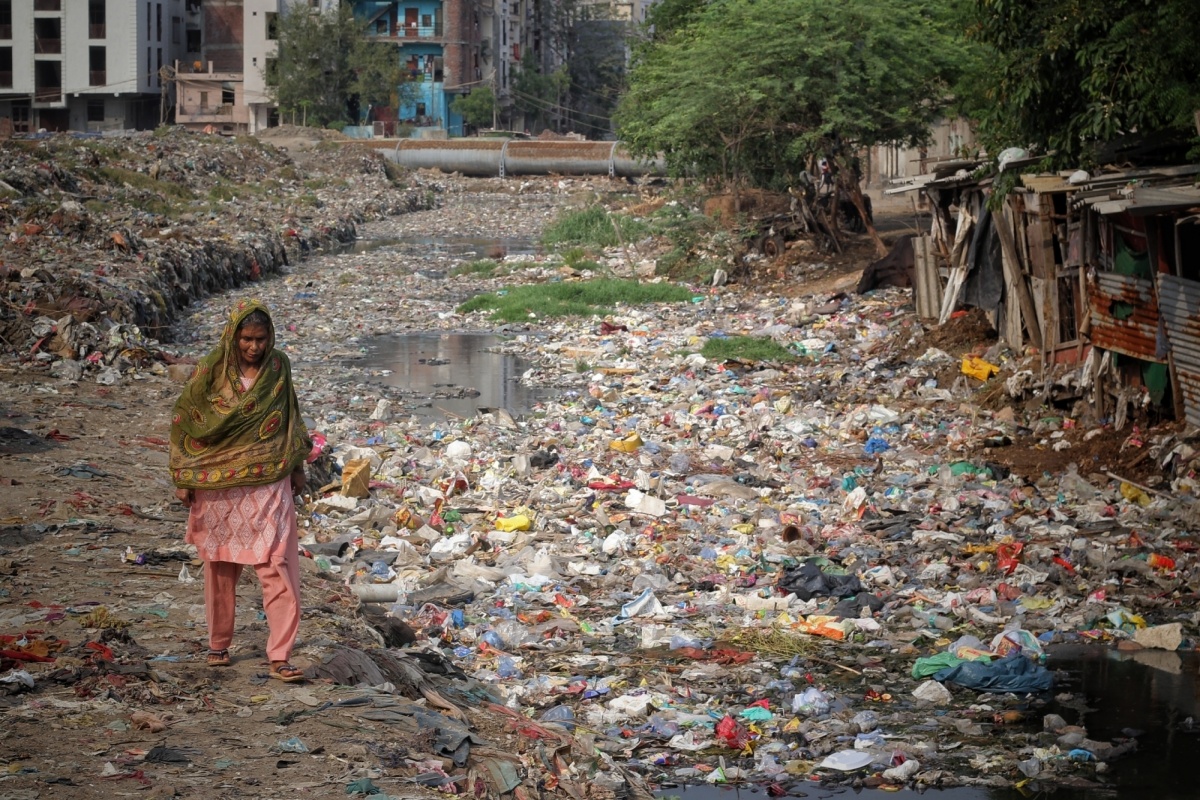South Korea beat India 3-0 in concluding Pink Ladies Cup tie
The Indian senior women’s team went down to South 0-3 in their concluding Pink Ladies Cup at the Al Hamriya Sports Club Stadium on Wednesday.
Local people know the area better and will give better results at a lower cost.

(Photo: Wasim Sarvar/ IANS)
An increasingly important concern in these times of an accentuating climate crisis has been to strengthen legislation for protection of the environment and to ensure the proper implementation of existing laws. This has become more important as various environmental safeguards have been getting weaker. The judiciary obviously has an important role in ensuring that existing legislative provisions for protecting the environment are not diluted.
While this responsibility is vital, an important precaution is needed in the context of developing countries like India where a significant section of people live in poverty and whose deprivation has increased because of the ongoing pandemic. Numerous studies and surveys have pointed to the aggravating problems of weaker sections and the most vulnerable among them such as migrant workers. Keeping in view this reality there is need to carefully examine environmental issues in such a way that environment protection is well integrated with the other equally important objective of reducing poverty and helping the poor.
Advertisement
In fact it is now increasingly realized in several studies that pursuit of environmental objectives in isolation cannot go very far if justice concerns are neglected or even violated. Environmental experts have repeatedly asserted that it is only when environmental and justice issues are well integrated that ordinary people will be mobilized in protection of the environment with commitment. Hence the great challenge before us is of integrating environment and justice concerns .
Advertisement
This can be a very creative task with exciting possibilities. Several persons and organizations are working on exploring and spreading these possibilities in India and other countries. Important lessons are also emerging from this exercise. One important lesson is that poor people who are often unjustly accused of being encroachers are often themselves victims of an unjust system and not really the perpetrators of ecological ruin. There is a big difference between them and the big encroachers.
The big encroachers can be accused of causing ecological ruin, but not the weaker sections who are victims of exploitation and in a desperate effort to survive they may have occupied some public or forest land. So, when such poor people are found to be living on some degraded forest land, what is the solution? Clearly the solution is not to evict them or to demolish their houses but to engage them in greening the surrounding area, and in fact their occupation of this land can be made conditional on their important contribution to planting indigenous trees and grasses much on the lines of a natural forest.
As they are poor, the government can also pay them for their efforts. When the trees grow, they can get some rights to get non-timber forest produce from these trees. Hence the objectives of justice as well environment protection can be combined. Let us imagine another situation where people from weaker sections live on a part of a degraded forest area and the forest department wants to plant trees on this land. In such conditions sometimes people are evicted, but a justice-based solution would be to involve them in this tree planting work in various ways, hence doing away with higher expense of bringing workers from a distant place.
Local people know the area better and will give better results at a lower cost. When the trees grow, as a reward for their maintenance and protection work, they can get rights over nontimber forest produce and this will be an additional gain as well as motivation to remain committed. While protecting forests, they can be involved also in documenting biodiversity, protecting wildlife and integrating all this in their education system.
These realities should get adequate attention of the judiciary so that courts can show the way forward in integrating the concerns of environment protection and reducing poverty. Ultimately it is hard-working, poor people who can make a significant contribution for greening the country if conducive conditions can be created for this. The judiciary with its wisdom can show the way ahead by helping to frame schemes so that poor people who are being called encroachers instead get a chance to create greener surroundings and to live in harmony with this greenery, while benefiting from it. For this noble cause, if the judiciary is required to reverse earlier decisions, it should do so and ensure that something noble is achieved.
(The writer, a journalist and author, is Honorary Convener, Save the Earth Now Campaign. His recent books include Planet in Peril and Protecting Earth for Children)
Advertisement